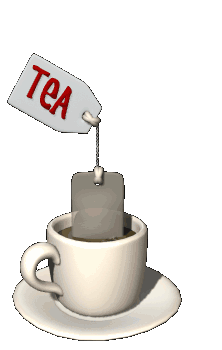

Naval engagements.After several skirmishes, fighting began in November 1839. HMS ‘Volage’ and HMS ‘Hyacinth’ defeated 29 Chinese vessels during the evacuation of British refugees from Canton.
On 21 June the following year, a naval force commanded by Commodore Sir Gordon Bremer arrived off Macao. It then moved north to Chusan and on 5 July bombarded the port of Ting-hai, which was then occupied by troops under Brigadier-General George Burrell.
Forts captured.Negotiations began between the British and the Chinese Emperor. Lord Palmerston, the foreign secretary, demanded compensation and the granting of an island off the coast for use as a trading station.
The Chinese refused and on 7 January 1841 the British captured the Bogue forts of Chuenpi and Tycocktow that guarded the mouth of the Pearl River.
Truce. The force that captured the forts was commanded by Major J L Pratt of the 26th (Cameronian) Regiment and suffered only 38 casualties. Of the Chinese fleet of 13 war-junks, 10 were captured and their flagship was destroyed.
The Chinese Admiral, Kuan Ti, asked for a truce and faced with overwhelming British strength, signed an agreement on 18 January 1841 by which Hong Kong became a British territory.
British demands.The Chinese still refused to back down. The British therefore advanced up the Pearl River with a reinforced military contingent under Lieutenant-General Sir Hugh Gough, capturing Canton on 27 May 1841. They then withdrew on the understanding that the Chinese would pay reparations of £60,000.
Charles Elliott negotiated the settlement, but Lord Palmerston, who felt he had not extracted enough concessions, dismissed him. His replacement, Sir Henry Pottinger, wanted compensation for the opium confiscated and the costs of the war, the opening of further ports to international trade and the establishment of diplomatic relations.
Amoy taken. The British moved north again and captured Amoy on 26-27 August 1841 and re-possessed Chusan (previously returned to the Chinese) on 1 October. Chinhai was taken on 10 October at the cost of three British dead and 16 wounded.
Ningpo was captured unopposed on 13 October before operations were suspended for the winter. Negotiations again proved fruitless and on 10 March 1842 the Chinese counter-attacked, but were easily repelled.
Assault on Chapu. The British continued moving north, capturing Chapu on 18 May 1842, in an operation that witnessed brave Chinese resistance. Many Chinese only surrendered after their defences had been breached and their enclosures set on fire by rockets.
During the assault, nine British soldiers and sailors were killed and 55 wounded. One of the dead was Lieutenant-Colonel Nicholas Tomlinson, commander of the 18th (Royal Irish) Regiment.
Free trade. The war ended on 17 August 1842, with the Treaty of Nanking enabling the British to 'carry on their mercantile transactions with whatever persons they please'. The treaty committed the Chinese to free trade, including the trade in opium.
Hong Kong was ceded to Britain, and the Treaty Ports of Guangzhou, Amoy, Foochow, Shanghai and Ningpo were opened to all traders. The Chinese also paid reparations.
The ease with which the British had defeated the Chinese armies seriously affected the Qing dynasty's prestige. This contributed to the Taiping Rebellion (1850-64). For the victors, the Opium War paved the way for the opening up of the Chinese market.

Victory. Gough and the naval commander, Admiral Sir William Parker, then moved on to Shanghai, which was captured on 19 June 1842. Continuing up the Yangtze, Major-General Lord Saltoun’s 1st Brigade engaged the Chinese at Chinkiang on 21 July. The city was captured and its military commander, Hai-lin, was burned in his house which had been set alight on his own orders.
British casualties were again modest, totalling 34 dead and 107 wounded. Faced with the possibility of a British assault on Nanking, the Chinese now sued for peace.
Landing troops at the west gate of Chingkiang, 1842
The First China War Medal 1842 was awarded to the British and Indian troops who served in the campaign













